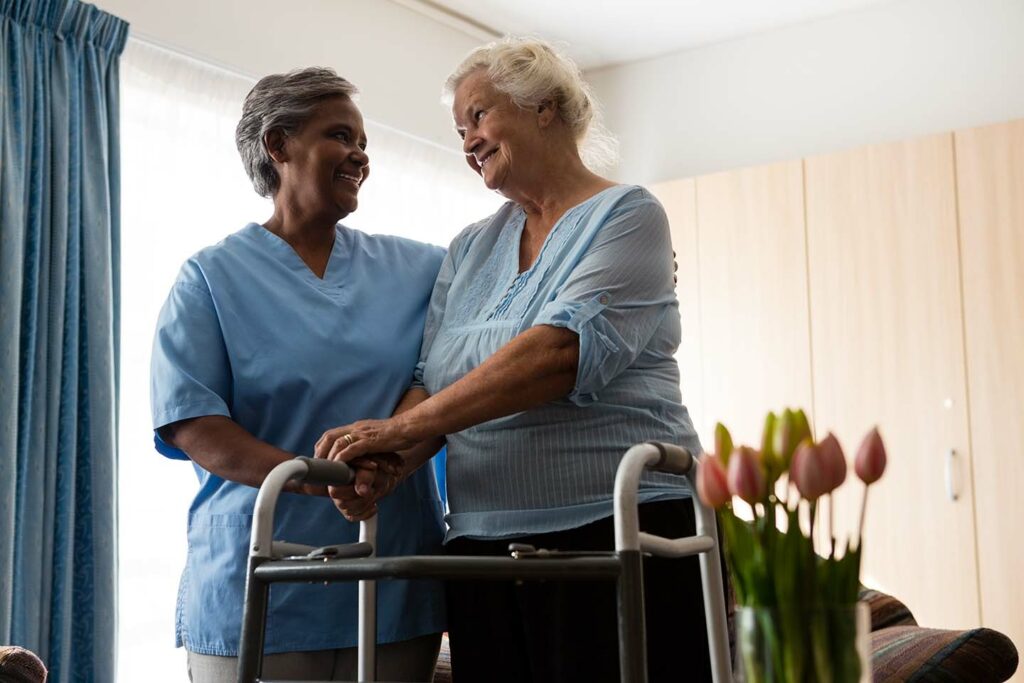If you are caring for a stroke survivor, you may have a lot of questions about whether your loved one will recover and what his or her needs will be in the months and years ahead. Strokes can be sudden and unexpected, so caring for a stroke survivor can be challenging and can cause high levels of emotional, mental, and physical stress for both the stroke survivor and caregiver. At IncrediCare, we know that caring for someone with a stroke comes with its challenges, as behavior, memory, communication, and physical capabilities can all be affected.
This disease process can leave clients with special challenges, such as difficulty swallowing. Our staff understands the importance of monitoring for swallowing concerns like a slight cough in order to consult the nursing staff to obtain orders for a swallowing evaluation. In some cases, during rehabilitation following a stroke, clients are unable to move well, thus needing staff to reposition them often to avoid pressure ulcers or skin breakdown.
When a loved one is first hospitalized immediately after a stroke, families usually step in to help supply information about the patient’s history and symptoms, check on treatments, convey patient care preferences, and generally serve as the connection between the hospital staff and the patient. You will suddenly become the patient’s voice and advocate, and that is where our care management at IncrediCare comes in.
Our stroke care plan includes:
- Creating a personalized care plan tailored to specific needs and preferences
- Supporting physical, occupational, and speech therapy
- Providing a positive and safe environment
- Promoting optimal health with mental and physical exercise
- Assisting with a wide spectrum of daily activities, including healthy meal preparation, bathing, and walking
- Reminding patient about medication
- Providing transportation to follow-up appointments and errands
- Offering companionship and support throughout recovery
- Encouraging social interaction and active social ties
As treatment progresses, as the primary caregiver, you might notice that there are other deficits and may be dealing with the patient’s depression, physical care needs, speech or physical therapy, facilitating communication if there is speech impairment, and providing mental and social stimulation.
It is helpful to remember that you’re not alone in this task, as there are resources available and it’s important to seek them out. It is also important to try to focus on the patient’s capabilities rather than limitations, and to show encouragement for every new gain, small or large.
There can be a lot to learn, so take advantage of every opportunity to learn about stroke and your loved one’s condition and prognosis. As you talk with our health care team about what the stroke recovery and rehabilitation process is likely to be, know that knowledge is power. The more you learn, the better you will be able to care for your loved one.





